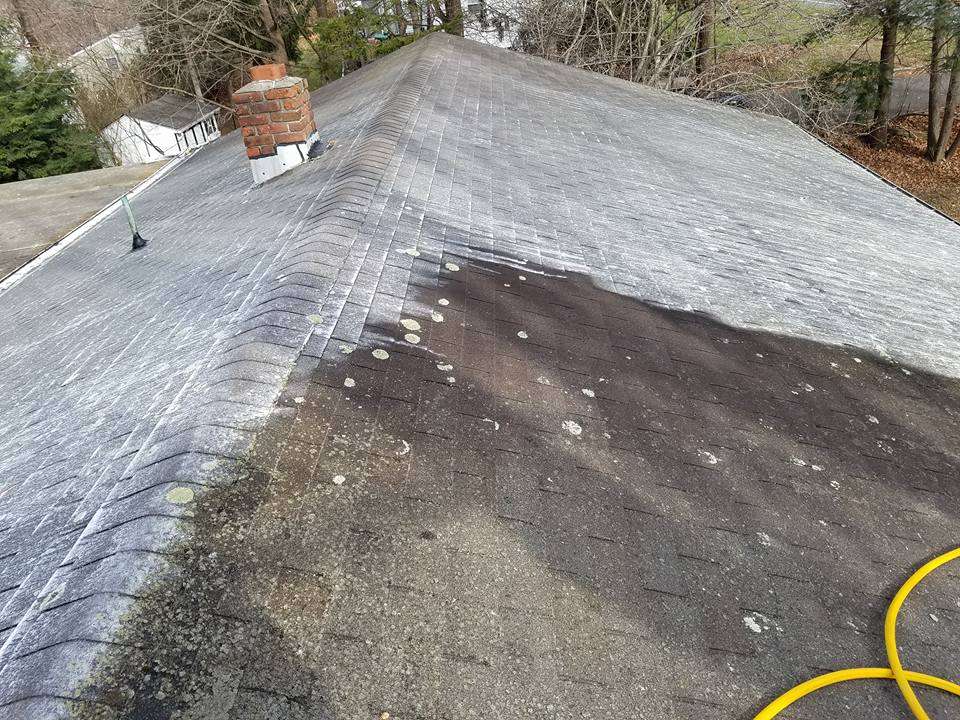Why Soft Washing Beats High Pressure on Roofs
Roofs get plenty of exposure to the elements. If it isn’t addressed, this exposure has implications for the lifetime of your roofing and the overall appeal of the house.
We solve each issue with the HydroEcoClean soft wash roof cleaning services in West Milford.
Our technicians are trained on the proper ways to clean and restore your home’s protective covering and our equipment can remove moss from any surface.
Benefits of Roof Cleaning (NJ Homes)
1. Improves your Homes Curb Appeal
2. Roof Cleaning is an Important Part of Maintenance
3. Protects your Homes Structure
4. Saves you Money on Roof Maintenance & Repairs
5. Saves Money on Insurance Installments
What We Treat
- Black streaks on shingles
- Algae and mildew on shaded slopes
- Moss and lichen that can lift shingle edges
- Valleys, vents, and north-facing areas prone to moisture

Roof Cleaning: Fight Environmental Damage
The Tri-state area of New Jersey, New York and Pennsylvania has a lot of environmental volatility, due to weather patterns and the yearly evolution of plant life. This can lead to harsh conditions for shingles, including the buildup of harmful elements, such as mold, mildew and moss.
These need to be removed from the roof’s top layer BEFORE penetrating the roof and causing breakdown in the shingles and eventually the roof’s sheathing.
Best Time to Clean Roofs in New Jersey
Spring clears winter residue; late summer targets shaded slopes when humidity drives regrowth; early fall before leaf drop with gutter cleaning to help prevent ice dams.
Contact us for a free estimate or call our West Milford, NJ office for more information on our pressure wash roof cleaning and moss removal services. We are happy to provide industrial pressure washing estimates in West Milford, Ringwood, Macopin, Wanaque, Bloomingdale, Butler, Kinnelon, and the Warwick communities. If you are outside of those areas, call us to possibly add your area to our service zone.
Roof Cleaning FAQ (NJ)
Will soft washing damage my shingles?
No—low pressure protects granules and avoids premature wear.
How long do results last?
Typically 1–3 years depending on shade, trees, and humidity.
Do you walk on the roof?
Only when needed and where safe—many roofs are treated from ladders.

